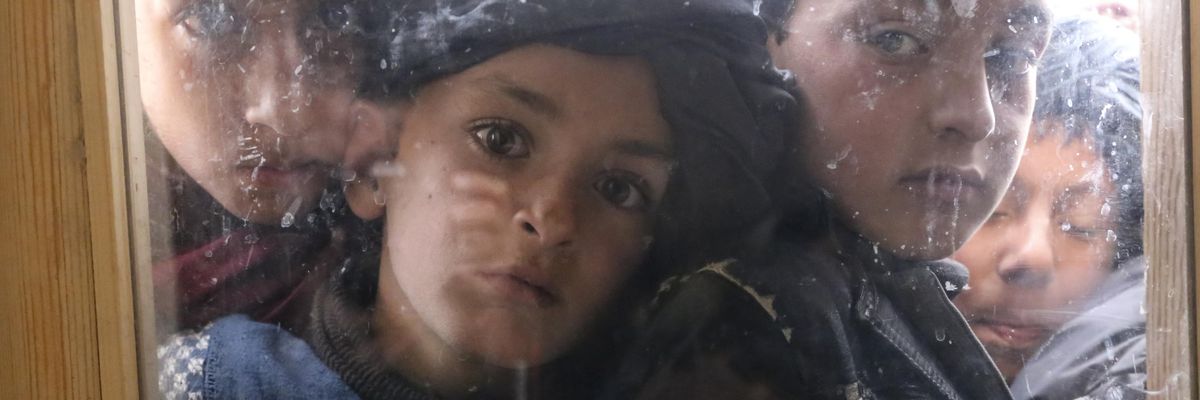With Afghanistan's economy teetering on the brink of collapse amid a nationwide humanitarian crisis, dozens of former diplomats, aid workers, and rights advocates demanded Tuesday that the United States and European countries immediately release the $9.1 billion in Afghan central bank assets that they froze after the Taliban retook power last year.
"This totally avoidable, and manufactured, man-made disaster does not have to persist."
In a letter to U.S. President Joe Biden, more than 50 ex-United Nations officials--including the former U.N. humanitarian coordinator for Afghanistan--and others warned that the White House's decision last month to seize $7 billion in Afghan central bank reserves held in the United States "will have a devastating effect."
"The end of four decades of warfare has brought a welcome reduction in armed violence, but the catastrophic effects of economic sanctions and the seizure of Afghan national reserves is exacerbating profound levels of poverty, deprivation, and desperation," reads the letter, which calls on Biden to immediately revoke a February executive order that looks to split the seized Afghan assets between the families of 9/11 victims and an ill-defined "trust fund" for Afghans.
"Unless urgent action is taken to release the Afghan reserves," the letter continues, "the misery of the people will only get worse, with catastrophic consequences in Afghanistan and beyond."
Similar letters, signed by the same group of academics and prominent human rights experts, were delivered Tuesday to German Chancellor Olaf Scholz, U.K. Prime Minister Boris Johnson, and Italian Prime Minister Mario Draghi.
United Against Inhumanity (UAI), the international coalition that coordinated the new letters, said in a statement Tuesday that it is "outraged by the callous freezing of... $9.1 billion worth of assets, belonging to the people of Afghanistan, that are held in U.S. and European banks."
"The crisis in Afghanistan cannot be divorced from the freezing of US$7 billion of Afghanistan's national reserves held in the U.S. Federal Reserve bank and some US$2.1 billion that are in European banks and elsewhere. These assets belong to the people of Afghanistan," the group added. "They constitute the reserves of Da Afghanistan Bank (DAB), the country's central bank."
"This totally avoidable, and manufactured, man-made disaster does not have to persist," UAI continued. "American and European politicians must take the ethical and lifesaving decision to stop punishing the people of Afghanistan who did not vote for the de facto authorities or the catastrophic crisis that threatens their lives."
The U.S. and European authorities froze the billions of dollars in Afghan assets following the Taliban's return to power in August of last year, when American troops completed their withdrawal from Afghanistan after two decades of deadly warfare.
Rights groups have warned for months that the decision to freeze Afghanistan's assets and keep in place crippling sanctions has exacerbated the country's humanitarian crisis, further straining its financial and healthcare systems, worsening near-famine conditions, and disrupting the flow of lifesaving aid.
But UAI and the signatories to the new letters make clear that aid efforts such as the Biden administration's proposed trust fund--which is ostensibly crafted "for the benefit of the Afghan people"--are not a sufficient alternative to a functioning economic system. Experts have warned that 97% of the Afghan population could be living in poverty by mid-2022.
"The collective punishment of the people of Afghanistan who have no responsibility for the 9/11 attacks or for the debacle leading to the return of the Taliban, is morally reprehensible, economically devastating, and politically reckless," UAI said Tuesday. "The consequences of inaction will be swift, severe, and deadly."

